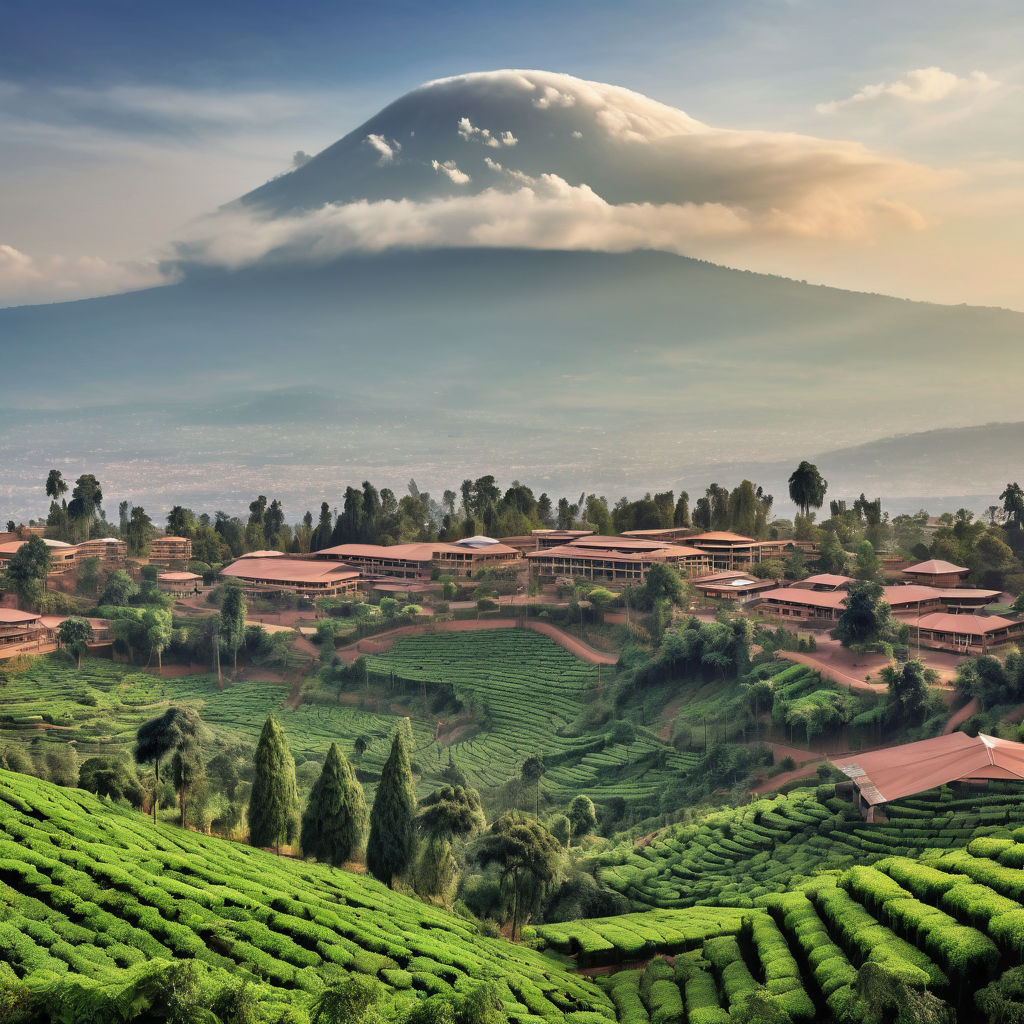Discover Rwanda: A Journey Through Culture and Resilience
Exploring Rwanda's Rich Heritage and Modern Progress

Introduction to Rwanda
Rwanda, a landlocked country in East Africa, is known for its breathtaking landscapes, ranging from lush greenery to mountainous terrains. Located near the equator, it shares borders with Uganda, Tanzania, Burundi, and the Democratic Republic of Congo. Kigali, the capital city, is the country's political, economic, and cultural hub, renowned for its cleanliness and progressive infrastructure. Other major cities include Butare, known for its educational institutions, and Gisenyi, a tourist hotspot by Lake Kivu. Rwanda's cultural heritage is deeply rooted in traditional music, dance, and crafts, reflecting the rich history and resilience of its people.
Cross-national and Cross-cultural Understanding
Rwandans generally have a positive attitude towards other cultures, valuing the insights and experiences they bring. This open-mindedness is partly due to the country's efforts to rebuild and unite after the 1994 genocide. As Rwanda has developed, it has embraced international cooperation and cultural exchanges to foster understanding and peace. Significant cultural exchanges occur through various educational programs and international partnerships. The University of Rwanda collaborates with numerous foreign institutions, promoting student and faculty exchanges that enhance cross-cultural understanding. Programs such as the Peace Corps and international NGOs also play a crucial role in bridging cultural gaps by bringing in volunteers who work closely with local communities. Rwanda's commitment to global engagement is further evident in its participation in regional organizations like the East African Community (EAC), which facilitates cultural and economic integration among member states. These partnerships not only boost the economy but also promote cultural exchange and mutual respect.
Interactions and Social Dynamics
Interactions between Rwandans and foreigners are generally characterized by warmth and hospitality. Social behaviors in Rwanda emphasize respect, community, and politeness. Rwandans value interpersonal relationships and are often willing to engage in meaningful conversations with visitors. Communication styles in Rwanda tend to be formal and respectful, especially in initial interactions. Greetings are an important aspect of Rwandan culture, with handshakes often accompanied by verbal greetings. Eye contact is maintained but not prolonged, showing attentiveness without being intrusive. Language plays a significant role in facilitating these interactions. While Kinyarwanda is the official language and widely spoken, many Rwandans, particularly in urban areas, are multilingual, speaking French and English. This multilingualism makes it easier for foreigners to communicate and integrate into Rwandan society.
Views on Dating and Relationships
Rwandans generally have open attitudes towards dating and relationships with foreigners, although cultural expectations and traditions still play a significant role. Dating in Rwanda is typically approached with seriousness and intent, often seen as a step towards a long-term commitment or marriage. In Rwandan culture, family approval is highly valued, and it is common for individuals to introduce their partners to their families early in the relationship. This can sometimes be a challenge in cross-cultural relationships, where differing cultural norms and expectations need to be navigated. Rwandan society places a strong emphasis on mutual respect, trust, and understanding in relationships. While there may be some traditional views regarding gender roles, modern influences and increased exposure to global cultures have led to more progressive attitudes among younger generations.
Marriage and Family
Marrying foreigners in Rwanda is generally accepted, though it involves certain legal, social, and familial considerations. Legally, mixed marriages are recognized, but the process may involve obtaining specific documentation and adhering to local regulations. Socially, acceptance of cross-cultural marriages can vary depending on the families involved and their openness to other cultures. Rwandan weddings are elaborate events that blend traditional and modern elements, often involving the extended family and community. Cross-cultural marriages may incorporate traditions from both cultures, creating unique and memorable ceremonies. Family plays a central role in Rwandan society, and the approval and involvement of family members are important in the marriage process. Families often provide support and guidance, ensuring that the couple is well-prepared for married life.